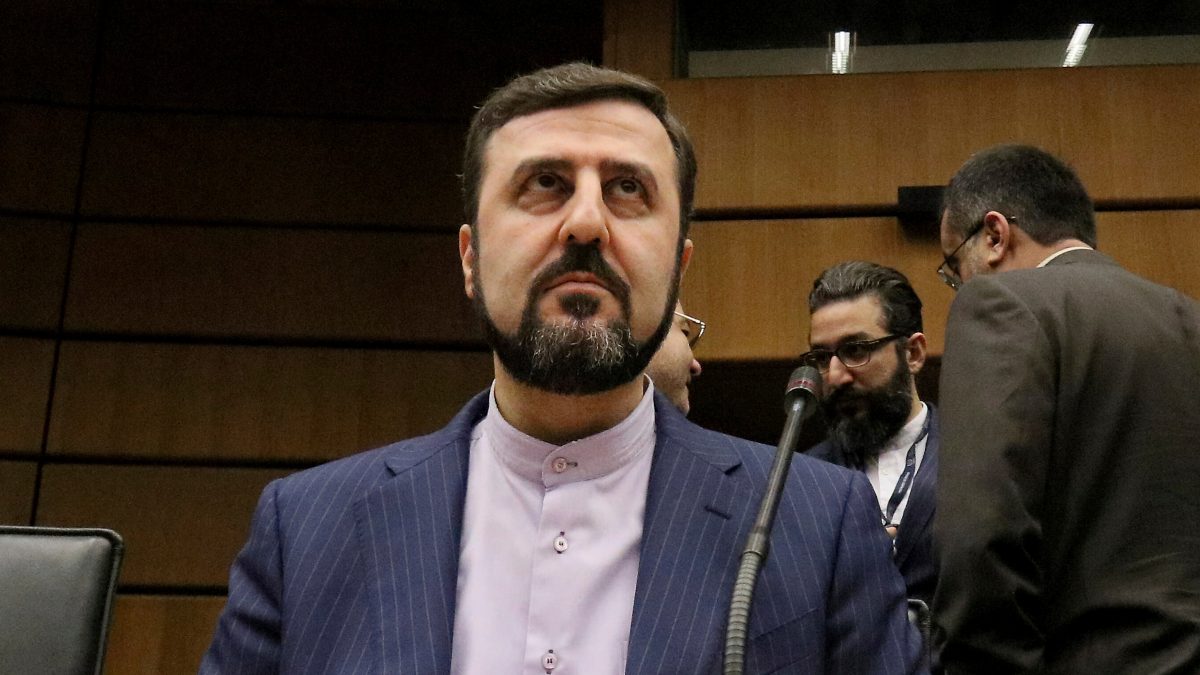Iran is willing to negotiate its nuclear program with the United States, but only if Washington makes genuine efforts to re-establish trust, a top Iranian diplomat said Thursday, ahead of a major meeting with European officials.
The conference will be the first since a truce was agreed upon during Israel’s 12-day war against Iran in June, during which US B-52 bombers targeted nuclear-related sites in Iran.
Iranian officials will participate in the talks alongside representatives from the E3 countries, which include Britain, France, and Germany, as well as Kaja Kallas, the head of the European Union’s foreign policy. In May, a similar meeting had taken place in the Turkish city.
Iran’s conditions
Iran’s deputy foreign minister, Kazem Gharibabadi, stated on social media on Thursday that Tehran would ask that “several key principles” be respected in talks with the United States.
These include “rebuilding Iran’s trust — as Iran has absolutely no trust in the United States,” he said, adding that there was no place “for hidden agendas such as military action, though Iran remains fully prepared for any scenario.”
Washington would have to accept and recognise Iran’s rights under the Nuclear Non-Proliferation Treaty, which include the freedom to enrich uranium “in line with its legitimate needs” and the removal of severe economic sanctions against Iran.
The talks in Istanbul will be held at the deputy ministerial level, with Iran sending Majid Takht-e Ravanchi, the other of Iran’s two deputy foreign ministers.
Impact Shorts
More ShortsA show of strength
Iran’s Foreign Minister Abbas Araghchi said in a televised interview Thursday that Tehran would not back down from uranium enrichment. Before the war in June, Iran was enriching uranium up to 60% — a short, technical step from weapons-grade levels.
“Our enrichment will continue, and we will not give up this right of the Iranian people,” Araghchi said in a video posted on the state TV’s Telegram channel.
Iran’s top diplomat said the Istanbul talks with the European parties are necessary, especially after the 12-day war, to make them aware that Iran’s positions remain strong.
“The world must know that there has been no change in our stance,” he said. “We will continue to firmly defend the rights of the Iranian people to peaceful nuclear energy, especially regarding enrichment.”
Araghchi also said that Iran has always been ready to advance its peaceful program within a reasonable and logical framework. “We have never hesitated to build trust with countries that may have concerns,” he said, “but at the same time, Iran’s demand is that its right to peaceful nuclear energy, including enrichment, be respected.”
High stakes
European leaders have threatened to trigger a “snapback” mechanism included in a 2015 nuclear deal with Iran, which would reimpose sanctions that were lifted in exchange for Iran accepting restrictions and monitoring of its nuclear program.
The United Kingdom, France and Germany were signatories to the 2015 deal. The US withdrew in 2018 during the first term of President Donald Trump, who insisted the agreement wasn’t tough enough.
Iranian officials have warned that a move to reimpose sanctions would have consequences. Gharibabadi said earlier this week that it could force Tehran to withdraw from key non-proliferation agreements.
In a letter to U.N. Secretary-General António Guterres, Araghchi accused the E3 of hypocrisy, saying they failed to uphold their obligations under the 2015 deal while supporting Israel’s recent strikes on Iran.
In last month’s conflict, Iran responded to Israeli and US strikes with missile attacks, including a strike on a US base in Qatar, which Iranian President Masoud Pezeshkian insisted was not directed at the Qatari state.
In an interview with Al Jazeera that aired on Wednesday, Pezeshkian said Iran is prepared for another war and accused Israel of attempting to assassinate him during a June 15 meeting of Iran’s national security council in Tehran.
Pezeshkian reiterated that Iran’s nuclear program will continue within the framework of international law and insisted the country has no intention of pursuing nuclear weapons.
“Our nuclear capabilities are in the minds of our scientists,” he said, emphasizing Iran’s position that future negotiations must be rooted in mutual respect, not threats.
The aftermath of war
According to Iran’s official judicial news agency Mizan, at least 13 Iranian nuclear scientists were killed during the June Israel-Iran war.
The extent of the damage to Iran’s nuclear sites from the war has not been publicly revealed but a spokesman for Iran’s Atomic Energy Organization said Thursday the country’s nuclear industry would recover.
“Our nuclear industry is deeply rooted. What has roots cannot be harmed by attack or pressure — it will grow back and thrive again,” state TV quoted Behrouz Kamalvandi as saying.
The U.N. nuclear watchdog — the International Atomic Energy Agency, or IAEA — reported in May that Iran’s stockpile of uranium enriched to 60% had grown to over 400 kilograms (882 pounds). That material, just below weapons-grade level, remains a central concern for the West.
After the June war, Iran suspended cooperation with the IAEA, following legislation signed by Pezeshkian.
The road ahead remains uncertain. While European officials say they want to avoid further conflict and are open to a negotiated solution, they have warned that time is running out.


)

)
)
)
)
)
)
)
)



